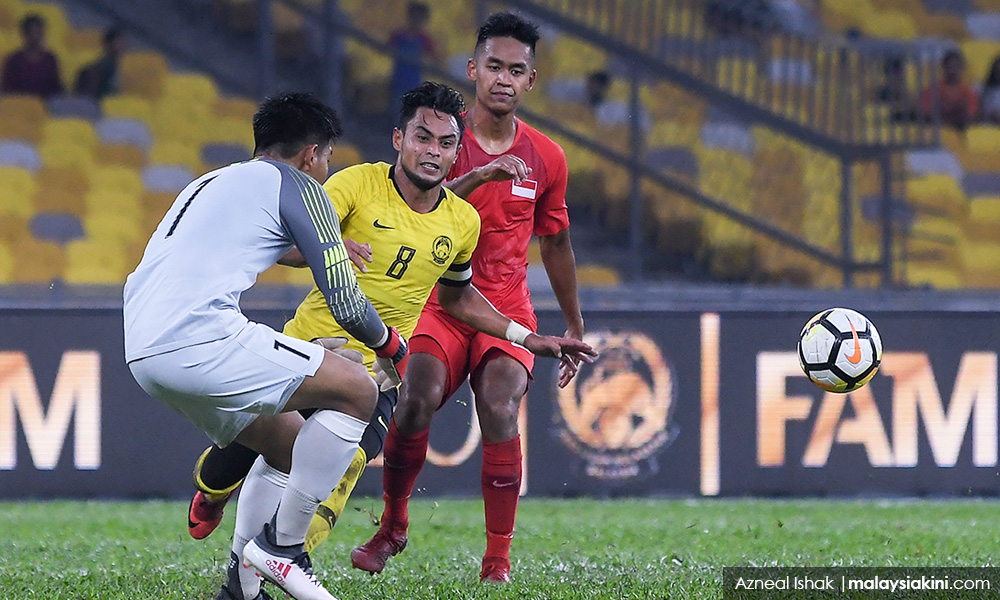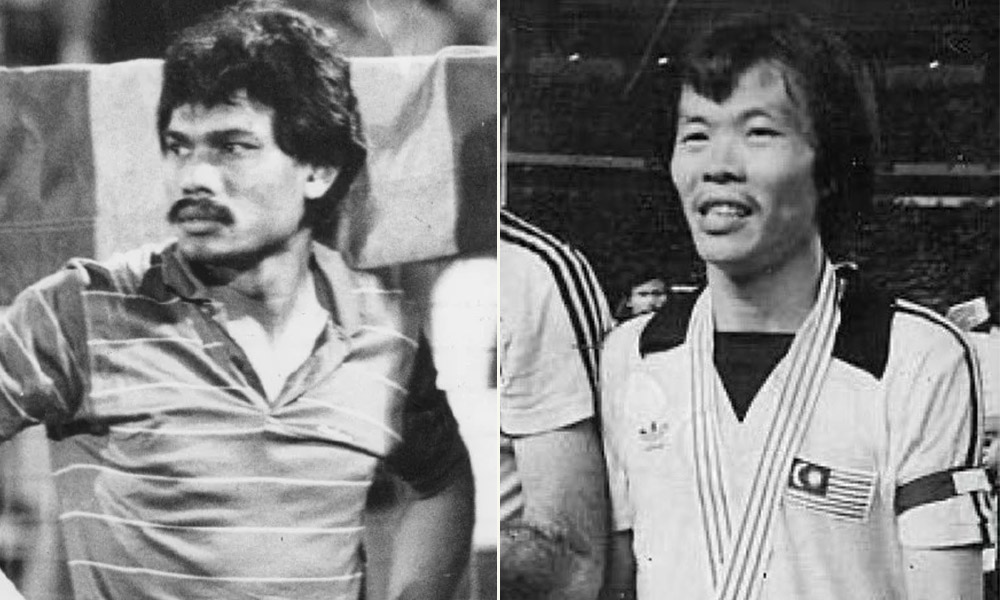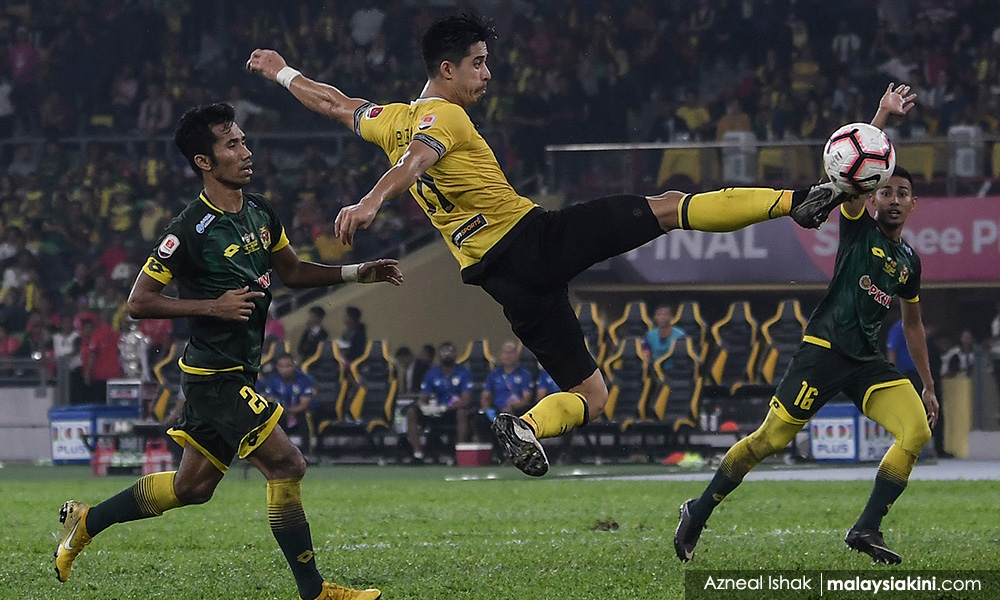One of the main problems with Malaysian football is that, as a nation, we are unable to fathom and accept the uneasy truth and reality of where we are and where we sit in the global football standings.
By almost all footballing measures, we are exactly where we should be, and it is just our collective inability to accept reality as well as illusions of grandeur that fail us and keep us rooted to where we are.
The facts:
- We are currently and rightly ranked 154 of 210 nations in the FIFA World rankings.
- Our only recent achievements are winning the AFF Championship in 2010 and qualifying for the Asia Cup in 2007 (We were co-hosts).
- We struggled at the World/Asia Cup Qualifiers, winning one of four matches.
- We did not make the Semi-Finals of the AFF Suzuki Cup.
The recent results in the AFF Suzuki Cup 2020 were seen from the public eye as a failing of the national team and the FA, but if we were to look at it objectively, being the fifth or sixth-best team in the Asean region is probably right.
Which measure or metrics makes us feel that we are on par or even ahead of the likes of Thailand, Vietnam, Singapore, Indonesia and the Philippines as a footballing country?
And if we are truthful, can we really claim to be so far ahead of the chasing pack of Myanmar, Laos, Cambodia and Timor Leste. In my humble view, it is a matter of time before these lesser teams become worthy adversaries and start giving us a run for our money.

The independent commission formed by the Football Association of Malaysia (FAM) to investigate the failings of the Suzuki Cup came up with 10 reasons and 10 recommendations (a nice round number) to fix the National Team's performance, but in truth, if we really take a long and hard look in the mirror, there was no failure at all.
We performed to our level and at the current moment, we are simply not good enough as a footballing nation to get into the semi-finals, let alone win the AFF Suzuki Cup.
Football, my friends, is generally quite easy; the better team tends to win.
An over-glorified history and delusions of grandeur
There are, in my view, two other reasons why we fail to grasp the reality of our situation.
First is an over-glorified history of our footballing achievements. Yes, we did have a degree of success from the 1960-80s, producing gems like Mokhtar Dahari and Soh Chin Aun and with the national team qualifying to play in the Asian Cup and Olympics. However, apart from this, we have never really been a powerhouse or had any significant prolonged presence on the regional or global stage.

At the mamaks, we hear discussions going back to the time when Malaysia was playing and beating the likes of Japan and South Korea, and because of these former glories, we feel that we have the right to claim superiority over less established nations in the region who may not have the heritage that we do. History is exactly what it is… the past.
Secondly, there is also a falsehood and misunderstanding that economic development and infrastructure equals football development. Just because we have the Twin Towers and more recently, PNB's Merdeka 118 Tower, it does not mean that we have the right to be a better footballing nation than Vietnam or Thailand. And just because our major stadiums are larger and grander, it does not mean that the quality of our players, leagues and teams are superior.
Football is democratic in nature, and footballing prowess is not tied up with rapid (now modest at best) economic development and over the top infrastructure. Being a slightly more economically advanced nation in the region does not give us the right to claim to be a more advanced footballing nation.
Over-subsidised and underperforming professional leagues
And then there is the Malaysian Football League and the above-market salaries that we pay. The Super and Premier leagues are essentially subsidised by the government (both federal and state), be it in the form of direct support of sponsorship via government-linked companies or state bodies.

Running a modest team in the Super League currently requires anywhere between RM8-12 Million a year. In contrast, being part of the Super League only gets you RM3 million a year from the commercial revenue it generates and even this money is paid late by the MFL. The economics simply don't work out, and this is something I will dissect in detail in a future article.
We are significantly overpaying for the quality of talent that exists in our top leagues and raising our expectations at the same time. The financial and economic model is only sustainable via large government subsidies which inevitably destroys competitiveness outside of the local bubble.
This is the main reason we hear of financial problems in the leagues year after year, which ultimately contributes to the national team's current strength and performance level. It is a vicious cycle of mediocrity. We are, in my mind, a nation whose football is in stagnation.
So, the question to ask my friends is, "Is there hope?"
The good news is, yes, there is always hope.
We have the ingredients and potential to be a strong footballing nation. We also have some advantages in the form of a strong (albeit unorganised) grassroots movement, a high level of interest and passion in the game and a sizable population to work with.
However, in order to take advantage of the above, we need to take stock and realise that at this moment in time, we are exactly where we deserve to be, not underperforming or overperforming.
Transformation and moving forward
As with all transformations, the mindset needs to change first.
In my view, it starts with a general sense of acceptance of our position, which is followed by the realisation that to move forward, a greater hunger and work ethic is required. This is followed by a high dose of humility from all football stakeholders so that we can listen, learn and work with each other and the people we bring (foreigners) in to support us in our development journey.
On the strategic front, I feel that modest and realistic expectations need to be set. This is unlike what has been outlined in the FAM F:30 roadmap, where Malaysia is to be an "Asian giant by 2026 and challenging the best in the world by 2030".
It is too simplistic a target and will end up in a blame game and witch-hunt when expectations are not met. In addition, some goals should also be independent of the performance of the national team and look at other indicators of success.
Maybe a modest and achievable goal by 2030 is to consistently reach the Suzuki Cup finals. This can be coupled with a goal of making sure that the fundamental blocks of the lower footballing pyramid (a lot of resources and work needs to be done at the youth and grassroots level) and eventually the professional leagues are in a good and sustainable state.
Let's start with accepting the uneasy truth that we are a weak footballing nation with a modest history in the game. Once we do this, we can then set realistic implementable targets and take the next steps from there. - Mkini
SAYF ISMAIL is an independent observer and passionate advocate for Malaysian football. He was formerly the head of marketing and social responsibility at the Football Association of Malaysia from 2014-2017.
The views expressed here are those of the author/contributor and do not necessarily represent the views of MMKtT.




No comments:
Post a Comment
Note: Only a member of this blog may post a comment.